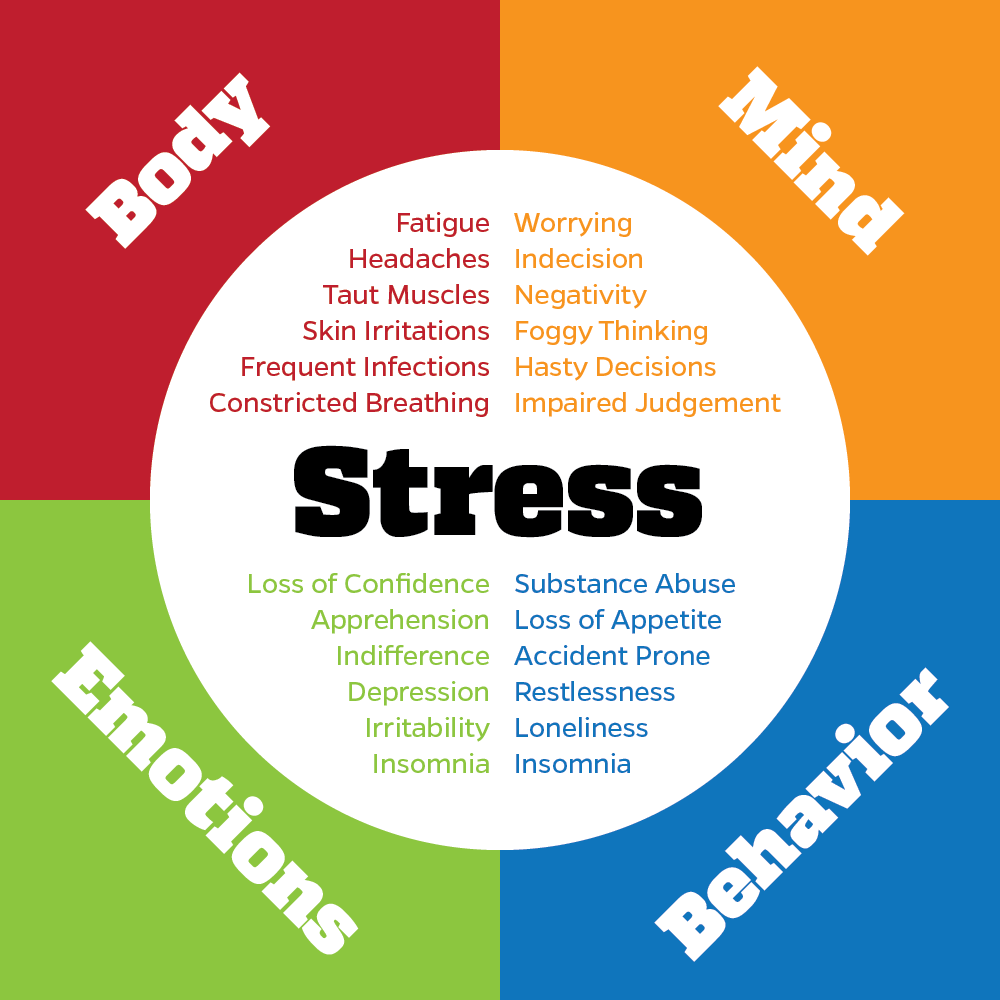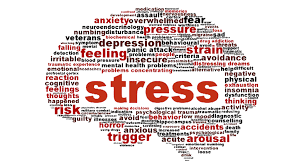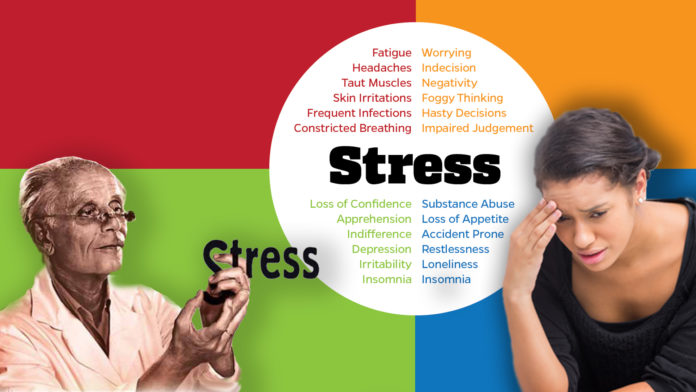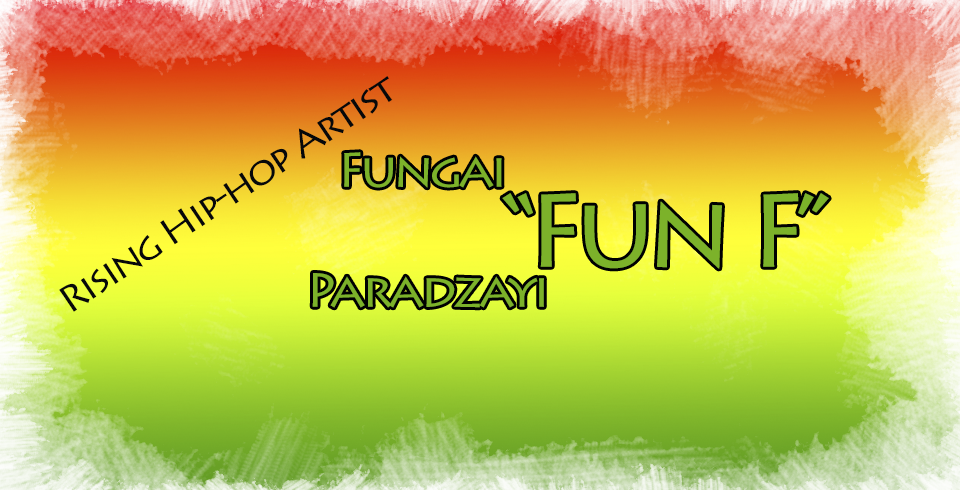According to the Hungarian endocrinologist, Hans Selye, in 1936 defined stress as the
“non-specific response of the body to any demand for change.”

In this theory, definition allows others to understand that stress isn’t a result to only bad or negative things but a reaction to slight changes in the environment, in other words stress could be said to be the reaction of the body to any physical, mental, financial or emotional pressures.
Stress also has been said to be the body’s natural defence against real or predicted dangers and acts as an agent which defends the body with hormones to prepare and confront dangers
Stress defined by Wikipedia states that it is a chemical or biological agent, environmental condition, external stimulus or an event that caused stress to an organism.
Research carried out by the American Psychological Association (APA) says that there are three major types of stress which are the ACUTE, EPISODIC & CHRONIC STRESS.
These stresses are said to have different reactions and characteristics each, and their symptoms, approaches and treatment differ from each other.

The acute stress study has shown some short-term effects whose most common signs are Anxiety, Depression, Muscular Tensions, Headaches, Constipations, Blood Pressure, Migraine, Cold Feet, Sleep Problems to mention but few.
The other two types of stress also exhibit some reactions which sometimes lead to mental fatigue and IBS could be, the chronic stress sometimes could lead to violence, suicide, heart attacks, stroke or even cancer.
Stress could be triggered in many ways which affects people psychologically and sometimes could be in forms of Work Load, Unemployment which could also lead to anger and being depressed
Grief and loss over a loved one are one of the triggers of the stress or because pains from each situation at times leads to shock and unnecessary guilt.
Stress management is one of the effective techniques in improving a person’s ability in handling stress.
 There are many ways which stress could be avoided and managed and has been a life support from stressed humans.
There are many ways which stress could be avoided and managed and has been a life support from stressed humans.
Regular exercises has been termed a stress reliever and serves as a distraction from worries and allows you to break free from negative thoughts.
Also reaching out to other and seeking for help and good interaction with people can trigger hormones that relieves stress.
Just some kind of words and gestures from a good person can help in calming down the nervous system, so it’s advisably healthy to spend time with people you feel relaxed with and keeping a positive and active social life.
More so learning to relax and practising relaxation techniques such as Yoga, Meditation, and being in a state of Restfulness would keep the body calm and at ease under any collected pressures.
Keeping up and not forgetting to rest and improving your sleep (at least 8hrs daily) to feel less stressed, and also maintaining an healthy diet can help a person live a better life and have a stressed free day daily.
by Prima



















